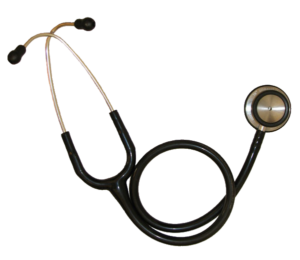 People fear dementia and Alzheimer's disease, because they are progressive diseases that nothing treats successfully. However, in the past year there have been some studies showing improvements with lifestyle changes (not cures, but for some the progression was slowed or showing some improvements).
People fear dementia and Alzheimer's disease, because they are progressive diseases that nothing treats successfully. However, in the past year there have been some studies showing improvements with lifestyle changes (not cures, but for some the progression was slowed or showing some improvements).
The latest studies found that exercise (especially aerobic execise) had some beneficial effects on those with mild cognitive impairment (MCI), Alzheimer's disease, and vascular cognitive impairment (VCI): neuropsychiatric improvements, improvements in biomarkers for the disease, and improved blood flow to the brain. From Medscape:
Physical Activity May Help Treat Dementia
New research shows that being physically active not only reduces cognitive decline and improves neuropsychiatric symptoms in patients with dementia but may actually reduce Alzheimer's disease (AD) biomarkers, including amyloid and tau protein in the brain. Exercise could also benefit patients with types of dementia other than AD, another study suggests.Some of this promising new research on exercise was presented at the Alzheimer's Association International Conference (AAIC) 2015.
Danish researchers had already presented cognition-related results of the multicenter ADEX study ...The intervention consisted of 1 hour of aerobic exercise three times a week for 16 weeks. The control group received usual care..... The analysis found that these [neuropsychiatric] symptoms improved in the 66 patients in the "high exercise"group... The NI is a 12-item questionnaire that rates, among other things, depression, apathy, agitation, hallucinations, irritability, weight loss, and sleep."We saw that the control group got worse; there was a small decline in this group, which you would expect because this is progressive disease," said Steen Hasselbalch, MD, Danish Dementia Research Centre, Copenhagen, Denmark. "But the intervention group remained at the same level and even got a little better, so at end of the intervention there was a significant difference."
The question arises of whether exercise could not just delay worsening of symptoms but actually change brain pathology.The answer, suggests other research, is yes. In a separate study presented at the AAIC 2015, researchers found decreased phosphorylated tau (P tau) in older, previously sedentary persons completing a 6-month regimen of moderate- to high-intensity aerobic exercise.
The study enrolled 70 patients aged 55 to 89 years with prediabetes as well as amnestic mild cognitive impairment (MCI)....We think they are at high, high risk for developing dementia of the Alzheimer's type." These patients were randomly assigned to the aerobic exercise group or to the stretching group. Those in the aerobic group started slowly — 10 minutes of exercise a week — and gradually built the time and intensity up over 6 weeks to the point where they were exercising 45 minutes a day, 4 days a week, at 75% to 85% of their maximum heart rate...."This group had a choice of exercises: treadmill, stationary cycling, elliptical trainer, or preapproved group classes.
The stretching group, whose members could do balance exercises, gentle yoga, and other approved classes in addition to stretching, maintained a maximum heart rate of below 35%. All exercises were adapted to the needs and limitations of individual patients and were done at a local YMCA.
The researchers looked at biomarkers in cerebrospinal fluid (CSF), including P tau protein and amyloid β 42....Most intervention trials don't show such changes in P tau. "But we saw it with exercise and no medications," said Dr. Baker. "Exercise was enough to move a biomarker that indicates the severity of the disease." It wasn't surprising, she added, that this was true only for older patients. "It may be that before age 70, you have a lot of compensatory mechanisms that help to maintain brain health, and after 70, those start breaking down."
The study also showed that the aerobic activity increased blood flow to the brain...The researchers demonstrated that the increased blood flow was in regions characteristically affected by aging and AD (ie, memory and processing). Cognitive benefits were particularly noteworthy for executive function..."Our brain imaging results are just fantastic; they show some really nice increases in blood flow in the areas of brain that support executive function and areas of the brain that normally show decreased flow for people with MCI, so it's reversing the blood flow detriment in MCI."
AD may not be the only dementia potentially treatable through exercise. Another study discussed at the meeting showed that this intervention may help those with vascular cognitive impairment (VCI). It's the first intervention trial to suggest that exercise can improve cognition in patients with confirmed VCI, said Teresa Liu- Ambrose, PhD, Canada Research Chair, University of British Columbia, Vancouver, Canada, who reported the results.The 6-month study included 71 patients aged 56 to 96 years with mild VCI of varying physical capacities. They were assigned to usual care that included a nutrition component or to an intervention of moderate-intensity walking, 3 times a week for an hour....In a subset of patients who had neuroimaging, there was "evidence of efficiency" in the brain of those who exercised, Dr Liu-Ambrose told Medscape Medical News.
 Something surprising: People with multiple sclerosis don't develop Alzheimer's disease - even if it runs in the family. New research suggests that multiple sclerosis may protect a person from Alzheimer's disease.
Something surprising: People with multiple sclerosis don't develop Alzheimer's disease - even if it runs in the family. New research suggests that multiple sclerosis may protect a person from Alzheimer's disease.
 Could our risk of getting Alzheimer's disease be lowered by something as simple as getting flu and pneumonia vaccines? Two large observational studies suggest just that.
Could our risk of getting Alzheimer's disease be lowered by something as simple as getting flu and pneumonia vaccines? Two large observational studies suggest just that. Lately more and more research has been finding health benefits with frequent consumption of extra virgin olive oil (EVOO). It is also a basic part of the popular Mediterranean diet - which emphasizes fresh fruits and vegetables, nuts, legumes (beans), whole grains, some fish, and extra virgin olive oil. Now a study conducted by investigators at Temple University in Philadelphia, Pennsylvania, suggests that the olive oil in the Mediterranean diet probably promotes healthy brain aging. The researchers said: "Our study is the first demonstration that EVOO can beneficially affect memory, amyloid plaques, and tau pathology, the hallmark lesions in the brain of Alzheimer's patients."
Lately more and more research has been finding health benefits with frequent consumption of extra virgin olive oil (EVOO). It is also a basic part of the popular Mediterranean diet - which emphasizes fresh fruits and vegetables, nuts, legumes (beans), whole grains, some fish, and extra virgin olive oil. Now a study conducted by investigators at Temple University in Philadelphia, Pennsylvania, suggests that the olive oil in the Mediterranean diet probably promotes healthy brain aging. The researchers said: "Our study is the first demonstration that EVOO can beneficially affect memory, amyloid plaques, and tau pathology, the hallmark lesions in the brain of Alzheimer's patients." Another study finding a link between air pollution and negative health effects - this time a higher incidence of decline in cognitive functioning and dementia in older women (65 and older) exposed to fine particles (PM2.5 ). These extremely small particles from
Another study finding a link between air pollution and negative health effects - this time a higher incidence of decline in cognitive functioning and dementia in older women (65 and older) exposed to fine particles (PM2.5 ). These extremely small particles from  Interesting preliminary research that suggests that daily intake for 12 weeks of several beneficial bacteria species (Lactobacillus acidophilus, L. casei, L. fermentum, and Bifidobacterium bifidum) resulted in improved mental (cognitive) functioning in 52 people with Alzheimer's Disease. Could this be true - daily probiotics to improve mental functioning in those with Alzheimer's?
Interesting preliminary research that suggests that daily intake for 12 weeks of several beneficial bacteria species (Lactobacillus acidophilus, L. casei, L. fermentum, and Bifidobacterium bifidum) resulted in improved mental (cognitive) functioning in 52 people with Alzheimer's Disease. Could this be true - daily probiotics to improve mental functioning in those with Alzheimer's? Again, another study showing the importance of lifestyle factors in the development of protein buildups in the brain that are associated with the onset of Alzheimer's disease. Specifically, the study found that each one of several lifestyle factors—a healthy body mass index, physical activity and a Mediterranean diet, were linked to lower levels of plaques and tangles on brain scans in people who already had mild memory changes, (but not dementia). Other posts discussing Mediterranean diet and brain health (brain volume, etc.) are
Again, another study showing the importance of lifestyle factors in the development of protein buildups in the brain that are associated with the onset of Alzheimer's disease. Specifically, the study found that each one of several lifestyle factors—a healthy body mass index, physical activity and a Mediterranean diet, were linked to lower levels of plaques and tangles on brain scans in people who already had mild memory changes, (but not dementia). Other posts discussing Mediterranean diet and brain health (brain volume, etc.) are  People fear dementia and Alzheimer's disease, because they are progressive diseases that nothing treats successfully. However, in the past year there have been some studies showing improvements with lifestyle changes (not cures, but for some the progression was slowed or showing some improvements).
People fear dementia and Alzheimer's disease, because they are progressive diseases that nothing treats successfully. However, in the past year there have been some studies showing improvements with lifestyle changes (not cures, but for some the progression was slowed or showing some improvements). Recently I've seen a number of published studies that found benefits to someone being bilingual or benefits in learning a new language. Some benefits recently found in bilinguals (or the "billngual advantage"): more gray matter in the executive control area of the brain, 4 to 5 year delay in onset of Alzheimer's symptoms, processing of information more efficiently and more easily, and young bilingual children are more likely to think that everything is learned (while monolinguals more likely to think things are innate). From Science Daily:
Recently I've seen a number of published studies that found benefits to someone being bilingual or benefits in learning a new language. Some benefits recently found in bilinguals (or the "billngual advantage"): more gray matter in the executive control area of the brain, 4 to 5 year delay in onset of Alzheimer's symptoms, processing of information more efficiently and more easily, and young bilingual children are more likely to think that everything is learned (while monolinguals more likely to think things are innate). From Science Daily: